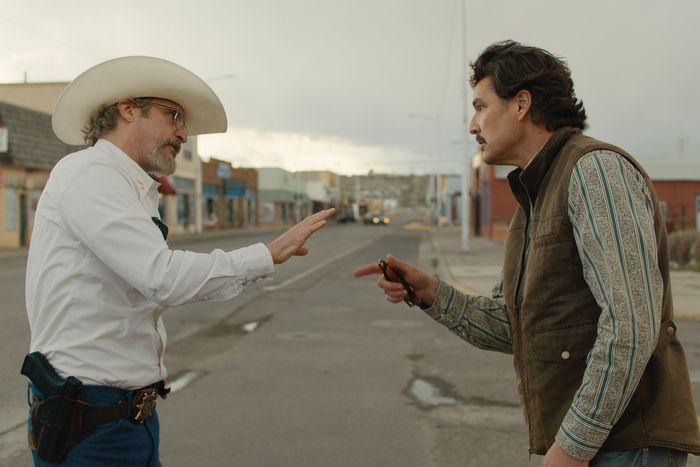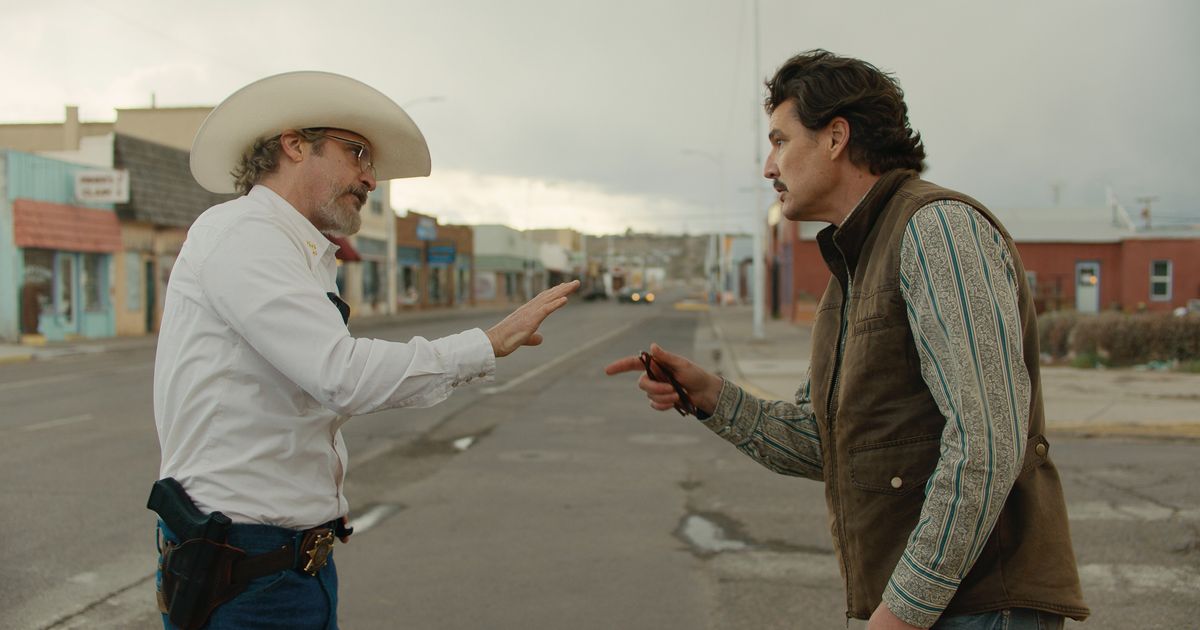
Ari Aster, the man behind Hereditary, Midsommar, and Beau Is Afraid, may not be the most obvious candidate for making a movie that explains how we live now. But then again, no genre really makes more sense for this moment than horror — except, maybe, for black comedy, and Aster’s bracingly nasty but centerless new film offers plenty of both. Eddington takes place in the early days of the coronavirus, in May 2020, though it doesn’t have anything in common with the mostly tedious crop of movies that sought to document what it felt like when the world ground to a halt. Five years, it seems, is the minimum amount of distance needed in order to see the pandemic not just as it was at the time, but as this massive trauma that fundamentally broke something inside us as a nation. Eddington, which is set in the fictional New Mexico town of the title, tells a big picture story about a small place. I didn’t love it — I’m honestly not sure I’d even say I liked it — but it gets at the way our shared reality fractured in ways that may be irreparable, leaving a situation ripe for grifters and opportunists to step in and take over.
Joe Cross, the Eddington sheriff played by Joaquin Phoenix, is neither, though he’s not nearly as stable as he’d like to pretend he is. He dotes on his wife, the fragile Louise (Emma Stone), but while he’d like to start a family, she has an aversion to being touched that goes back to an enigmatic ordeal in her youth (“I am getting better,” she insists). His mother-in-law, Dawn (Deirdre O’Connell), has been living on their couch for weeks, and she’s an avid conspiracy theorist who insists on printing out “research” and making sure Louise consumes it by having her read it out loud. The state recently handed down a mask mandate, but Joe doesn’t like wearing them, out of general truculence and because he claims they make it hard for him, as an asthmatic, to breathe. While he’s not a COVID denialist exactly, he is in denial about the virus arriving in his part of the planet, preferring to think of it as not a “here problem.” His own “here problem” is bar owner and mayor Ted Garcia (Pedro Pascal), who has a past with Louise, who’s always in an N-95, and who exudes a liberal smarm that he clearly can’t stand.
Eddington is surprisingly sharp with its granular culture-war details, from the “Your being manipulated” sign on Joe’s truck to the ways people fearfully bludgeoned one another over still-shifting contagion guidelines to protest-curious teenager Brian’s (Cameron Mann) Twitter feed. But Aster, who also wrote the film, seems more interested in delving into how the enormous disruption of lockdown sent people careering in different directions than he is in choosing (or even establishing that there are) sides. Social-media progressive Sarah (Amélie Hoeferle) becomes the (white) face of the local BLM movement, to the point of lecturing her Black sheriff’s deputy ex-boyfriend about how he should be joining her in the streets. Louise becomes fixated on an influencer named Vernon Jefferson Peak (a tatted-up Austin Butler) whose posts about pedophile rings resonate with her own unspoken history with abuse. Deputy Luke (Luke Grimes), outraged by news coverage of the George Floyd protests, starts treating his Black co-worker Michael (Micheal Ward) with suspicion, while insisting he never saw race before. The town, population 2,435, starts to feel like it will either accelerate into its ongoing decline or expand and explore, though it’s never clear how Aster feels about either possibility.
Eddington covers a lot of ground, much of it extremely online. In combination with filmmaking that’s more straightforward and less stylistically showy than Aster’s previous films, that sometimes leaves it feeling in danger of veering into Adam McKay satirical broadness without an Adam McKay moral to impart. What saves it, aside from Aster’s willingness to get much darker and escalate into gruesome violence, is the movie’s deft depiction of Joe’s downward spiral, embodied with watery-eyed dedication by Phoenix. Joe’s world may be narrow, but he nevertheless senses it getting away from him in ways he can’t articulate, but that terrify him. When he impulsively decides to run against Ted for mayor, he starts careering toward extreme statements almost immediately — out of a desire to defeat his rival, sure, but also out of a need to be the one who will “do the right thing,” with whatever that may be to be figured out later, and to restore a crumbing town with vague declarations about heart and restoration. The simpler, closer community he speaks about going back to clearly never existed, but the one that’s rushing in via smartphone screens is justifiably frightening and tumultuous, filled with conflicting information and sketchy self-appointed leaders trying to shout over the din.
Joe isn’t much of a shouter or a planner. “You want things simple and neat,” Vernon informs him at one point, and it’s true. But even more than that, Joe wants to be the hero of this warped fable. Instead, Eddington positions him as a tragic fool — and makes it obvious that’s a role that none of us are exempt from, no matter how much we may think we know about what’s going on.
See All









